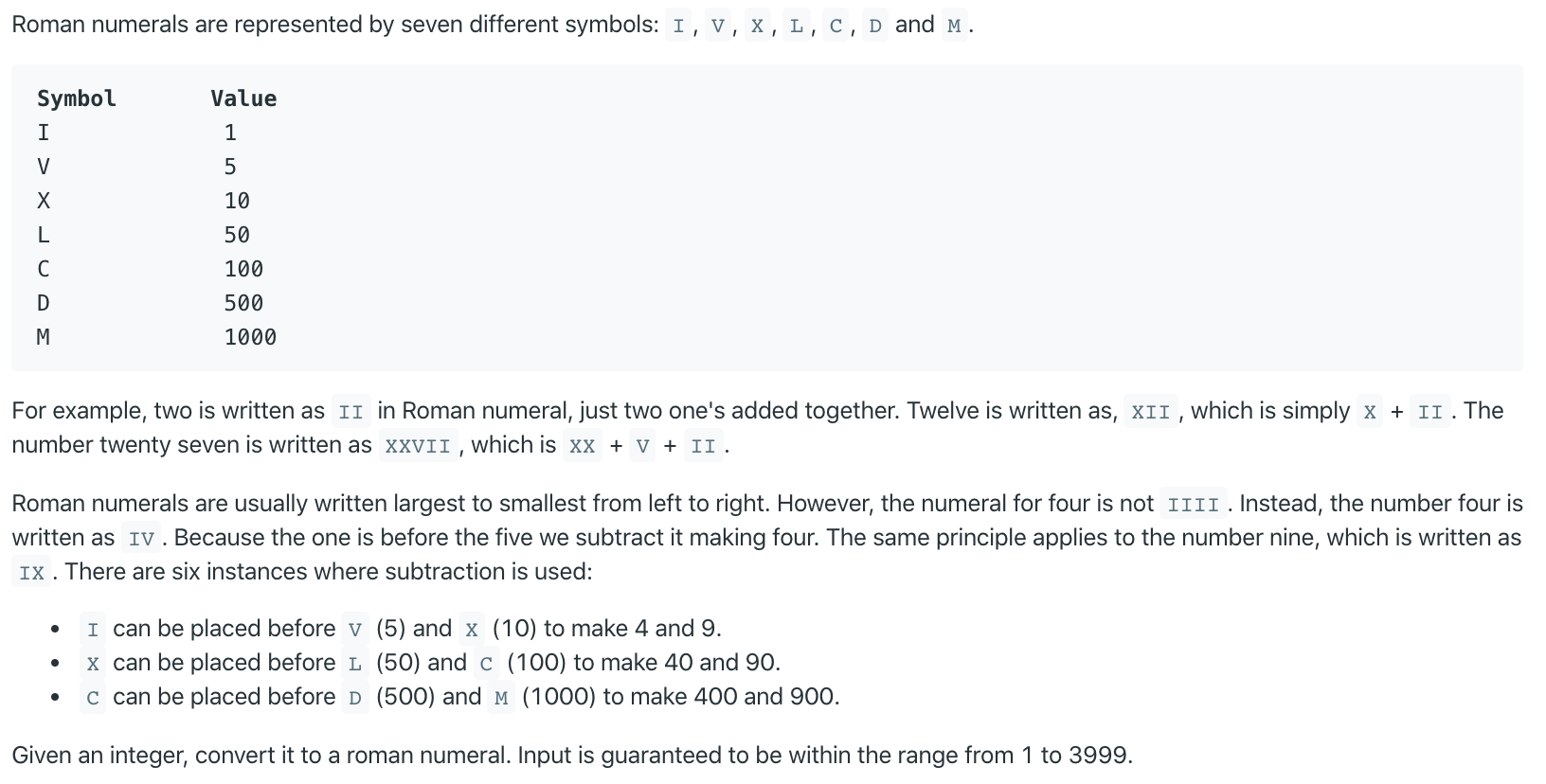Integer to Roman
franklinqin0 MathString

# Solution
All following three solutions take linear time.
# Many if/else Statements
A verbose but straightforward solution is done with while and if/else statements.
def intToRoman(self, num: int) -> str:
res = ""
while num>0:
if num>=1000:
num -= 1000
res += "M"
elif num>=900:
num -= 900
res += "CM"
elif num>=500:
num -= 500
res += "D"
elif num>=400:
num -= 400
res += "CD"
elif num>=100:
num -= 100
res += "C"
elif num>=90:
num -= 90
res += "XC"
elif num>=50:
num -= 50
res += "L"
elif num>=40:
num -= 40
res += "XL"
elif num>=10:
num -= 10
res += "X"
elif num>=9:
num -= 9
res += "IX"
elif num>=5:
num -= 5
res += "V"
elif num>=4:
num -= 4
res += "IV"
else:
num -= 1
res += "I"
return res
1
2
3
4
5
6
7
8
9
10
11
12
13
14
15
16
17
18
19
20
21
22
23
24
25
26
27
28
29
30
31
32
33
34
35
36
37
38
39
40
41
42
43
2
3
4
5
6
7
8
9
10
11
12
13
14
15
16
17
18
19
20
21
22
23
24
25
26
27
28
29
30
31
32
33
34
35
36
37
38
39
40
41
42
43
# Cache into Arrays
There are 2 ways to store the mappings from number to symbol.
# Cache Corresponding nums and symbols
def intToRoman(self, num: int) -> str:
nums = [1000, 900, 500, 400, 100, 90, 50, 40, 10, 9, 5, 4, 1]
symbols = ["M", "CM", "D", "CD", "C", "XC", "L", "XL", "X", "IX", "V", "IV", "I"]
digit = 0
res = ''
while num>0:
times, num = divmod(num, nums[digit])
for _ in range(times):
res += symbols[digit]
digit += 1
return res
1
2
3
4
5
6
7
8
9
10
11
2
3
4
5
6
7
8
9
10
11
# Cache Remainders of Divisions
def intToRoman(self, num: int) -> str:
M = ["", "M", "MM", "MMM"]
C = ["", "C", "CC", "CCC", "CD", "D", "DC", "DCC", "DCCC", "CM"]
X = ["", "X", "XX", "XXX", "XL", "L", "LX", "LXX", "LXXX", "XC"]
I = ["", "I", "II", "III", "IV", "V", "VI", "VII", "VIII", "IX"]
return M[num//1000] + C[(num%1000)//100] + X[(num%100)//10] + I[num%10]
1
2
3
4
5
6
2
3
4
5
6